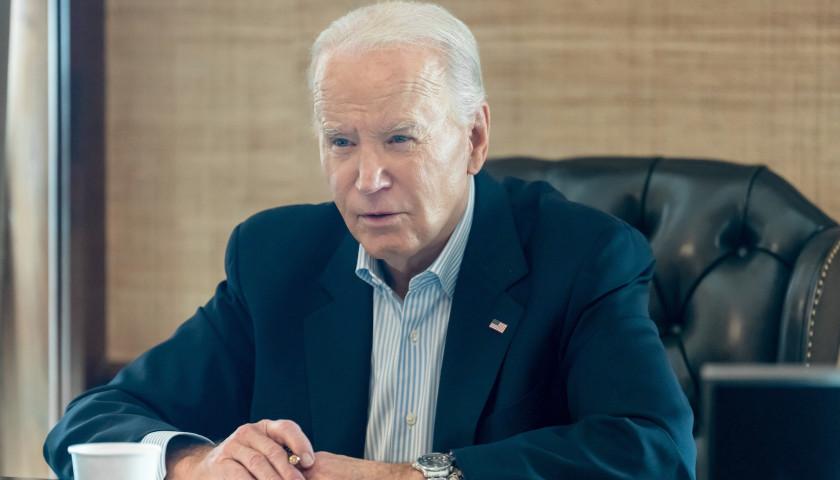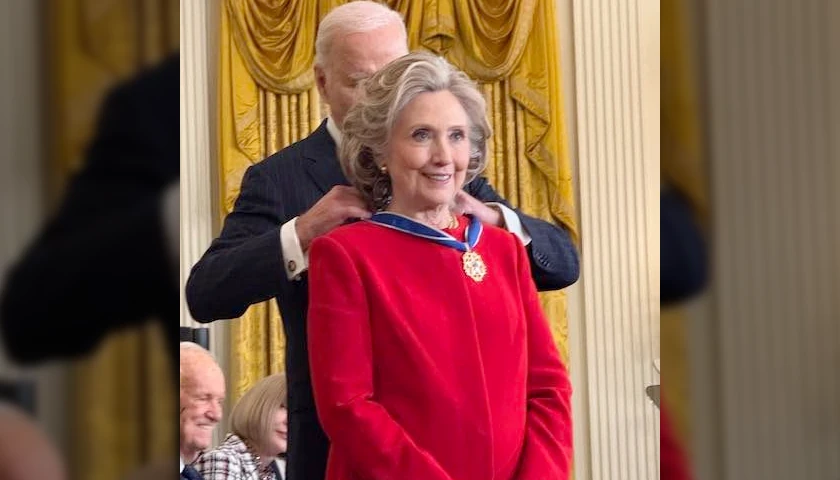by John Solomon
While he was vice president, Joe Biden received sensitive communications via his private email accounts created under a fictitious identity, including foreign policy discussions with his national security adviser, schedules of meetings with Cabinet secretaries and a summary of at least one intelligence briefing to President Barack Obama, according to new emails obtained by Just the News.
The new memos were released by the National Archives over the Memorial Day holiday weekend under a Freedom of Information Act lawsuit brought by the Southeastern Legal Foundation on behalf of Just the News that sought emails that Biden received or transmitted as vice president using his [email protected] account.
While none of the newly released emails had classification markings on them, several included sensitive information transmitted over an insecure Google email account that could be of value to foreign powers and hostile spy agencies. The latest batch involved communications mostly from 2012.
For instance, Biden was forwarded an early morning briefing from then-White House counterterrorism director John Brennan to Obama on possible tsunamis hitting Hawaii in October 2012 which gave details on what the president had been told and how an emergency response would be crafted by the U.S. government.
“Call with POTUS took place at 3:10 a.m. EST,” the email from Brennan stated. “He was briefed on earthquake, tsunami warnings, evacuation plans, and FEMA/federal response. He directed that all possible be done by the federal government to assist Hawaiian authorities before, during, and after tsunami hits.
“Same should be true for any potential tsunami impact on Alaska, west coast of continental United States, or U.S. territories in the Pacific. POTUS asked to be kept updated on developments, which Alyssa and I will do,” the email noted.
Federal employees are allowed to use a private email account only as long as they forward government-related messages to their official work account in order to preserve the conversations so they can later be made available to the public or accessed by oversight groups. In 2017 the Trump administration was pilloried for allegedly failing to follow this rule.
To date Biden has not offered any explanation why his private email account was used and the emails were apparently not forwarded to secure government servers. The White House has yet to address why Biden chose to use fake account names. Ironically, Biden was vice-president when President Obama introduced on his first day in office, the Memorandum on Transparency and Open Government, boasting that it would usher in “a new era of open and accountable government meant to bridge the gap between the American people and their government.”
The Archives says it has tens of thousands of such emails from three Biden personal pseudonym accounts used during his vice presidency.
One sensitive email hinted at frictions between Obama and Biden which emerged on television talk shows over the raid that killed reviled terrorist leader Osama bin Laden, who ordered the Sept. 11, 2001 attacks on America. Biden had opposed the raid.
“Transcripts look great. I’ve got your back on the other thing,” senior White House adviser Antony Blinken wrote Biden on Oct. 23, 2012, just a few weeks before the presidential elections. “Also I re-read that transcript and – – not that this is much better — potus was not referring to decision to get bin laden but rather warning Pakistan. Goes back to 2008 campaign. I can explain.”
Several of the more sensitive emails involved communications with Blinken, now Biden’s Secretary of State and then the vice president’s chief security adviser.
For instance, during a period of tensions between the Kurds and Iraqis in the Middle East, Blinken sent several emails to Biden with observations about the Mosul region on Aug. 22, 2012.
“Mosul — is due west of Erbil BUT in Iraq proper, NOT in the KRG. It’s just west of the green line on the Iraq side,” Blinken wrote in one missive offering the vice president some geographic context.
A short while later, Blinken added some sensitive observations about possible violence,
“Further to this – there are parts of Ninewah Province that are disputed and a very small piece of Mosul itself, but the Kurds make no claim to the city as an entity. Lots of oil though, so could become a flash point,” Blinken wrote.
Earlier releases by the National Archives to the Southeastern Legal Foundation and Just the News included more mundane transmissions of official government business, such as schedules and news clips. The latest batch had more foreign policy and security information in them.
One clear pattern is that Biden staffers felt comfortable sending official information to Biden’s pseudonymic accounts, including schedules of meetings, even when they involved sensitive figures.
For instance, White House official Cathy Cheung sent a tentative itinerary that revealed Biden was planning a private meeting with Defense Secretary Leon Panetta at the Naval Observatory in fall 2012.
“Sir, this is what the day would look like if you depart on Thursday for the service,” Cheung wrote Biden on his private email account. “AM – 30 minute meeting with Secretary Panetta at NavObs.”
– – –
John Solomon is an award-winning investigative journalist, author and digital media entrepreneur who serves as Chief Executive Officer and Editor in Chief of Just the News. Before founding Just the News, Solomon played key reporting and executive roles at some of America’s most important journalism institutions, such as The Associated Press, The Washington Post, The Washington Times, Newsweek, The Daily Beast and The Hill.
Photo “Joe Biden” by President Joe Biden.





